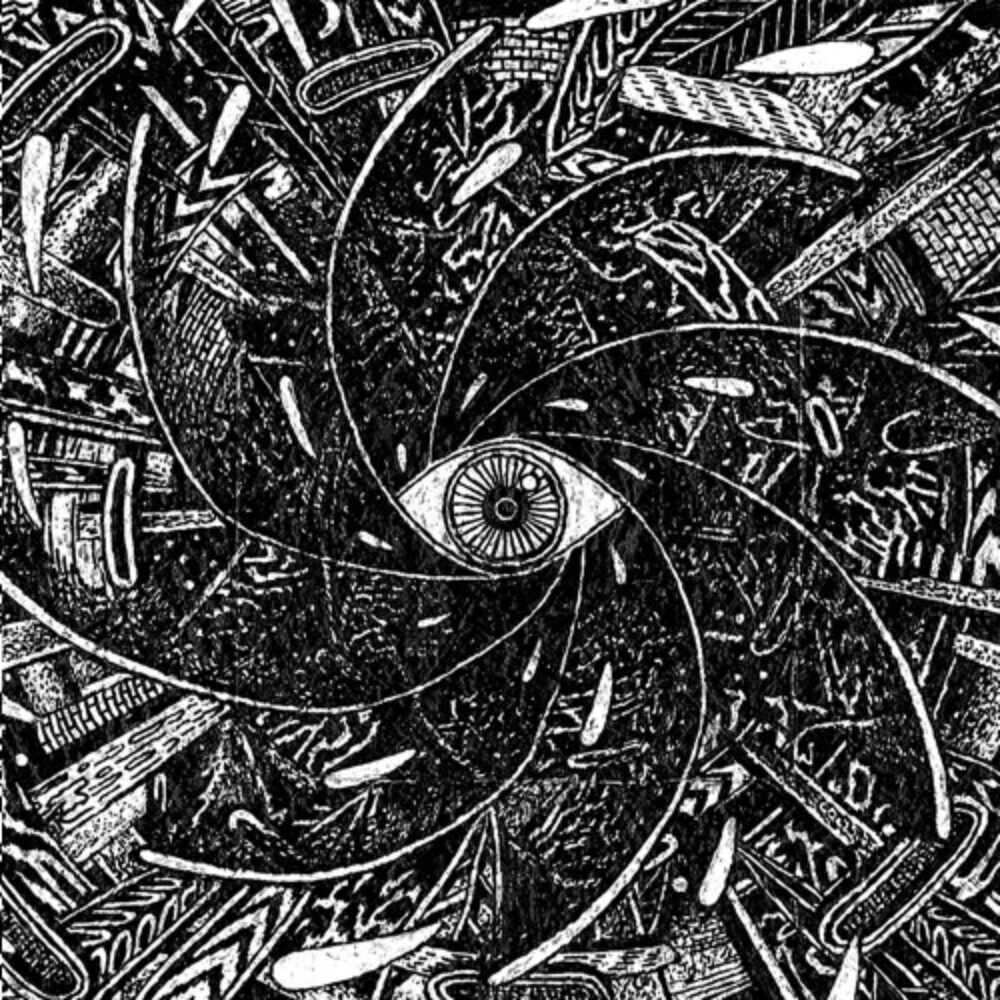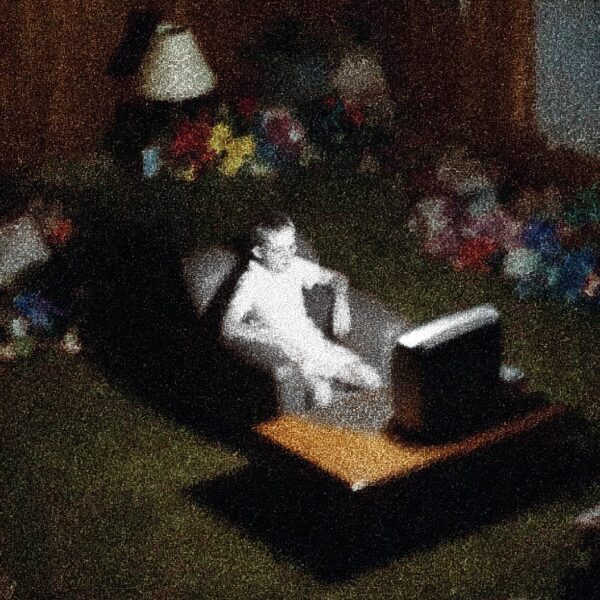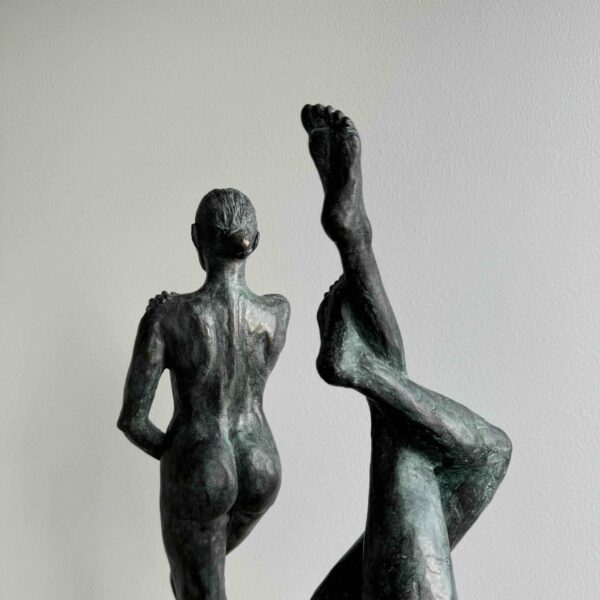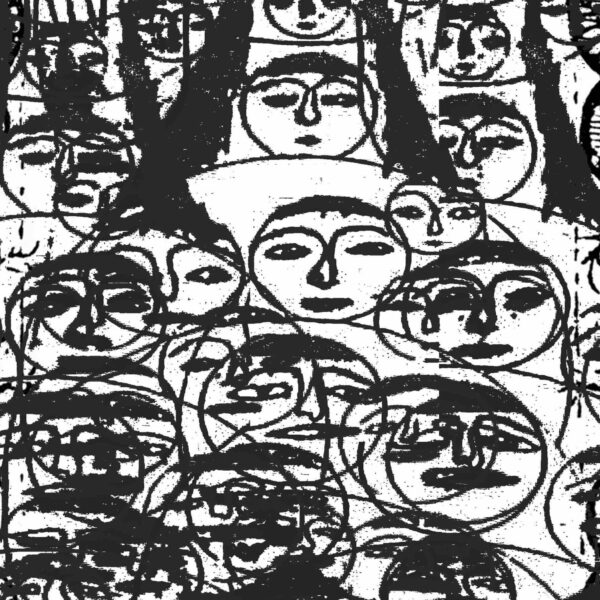Jake Fried on Finding Spirituality and Love Through Art
Using ink and white-out to generate hallucinatory vistas, Jake Fried repeatedly modifies and records his images to create mind-bending animations. Fried's films have been auctioned at Christie's, exhibited at the Tate Modern and Sundance Film Festival, and commissioned by Adult Swim, Netflix, and numerous art galleries around the world. In this interview, we dive into Fried’s philosophies, how the digitization of art has affected his life, and discuss the constant evolution of what it means to be an artist. Please note, this conversation has been edited for brevity and clarity.

Q: What was the first moment where you remember thinking that you were going to become an artist? What was that like for you?
JAKE FRIED: I’ve always felt like I was an artist. It’s just been my personality, even as a kid. My mom says I would just draw all the time every day. It’s what I did as a child. So growing up when people were like, what do you want to be when you grow up? It was kind of an obvious thing.
Q: So you’ve always known you wanted to be an artist. What does being an artist mean to you?
JAKE FRIED: I think every artist has to discover that for themselves, and it’s an evolving question. There’s no one answer. That’s kind of what the NFT space is as part of my artistic journey, too. It’s like nothing I ever anticipated as a child, but I always knew that art reflects what’s happening in society, and being an artist is a part of that. So it’s been really cool to grow up knowing you wanted to be an artist, but not knowing what that would exactly look like. I think a lot of my journey has been questioning my assumptions of what an artist is. The definition has to change every generation because the world changes, technology changes, the way we consume culture changes, and I’m fascinated by that.
I think it's so easy to think that art is about the art you're making and that's kind of it. Or it's just a product, but it's really a conversation.
Q: Were there any kind of pivotal changes in your understanding, any breakthroughs in your understanding of what being an artist meant to you?
JAKE FRIED: There are a lot of those. I talk a lot about this, because it’s my life. I’ve been a professor and a museum educator for my entire adult life, and that is such a huge part of what being an artist is for me. The consistent breakthrough I have is that art is obviously about other people and about communication, and I think it’s so easy to think that art is about the art you’re making and that’s kind of it. Or it’s just a product, but it’s really a conversation. I think of my artwork and my work as an artist and as a mentor with other artists, and consuming art, and being part of the conversation, and sharing art that I love. I think a big part of maturing as an artist is making it less about myself and making it more about engaging with the world and the community.
Q: How does your presence on social media affect your daily life as an artist?
JAKE FRIED: I have a global audience every day online and that’s just a completely different take. So I think artists used to be kind of like celebrities where it’s, you know of them, they have sort of a caricature, and you might see an interview where they can be kind of cryptic about what they’re actually doing. Whereas now it’s all very public and you’re accessible. Anybody can reach out to me. People can see my process more. They understand my thinking day to day. They’re literally following my life as it’s happening. That is, I think, incredible. I do think that changes what it means to be an artist. I’m not just putting my work in a gallery and saying deal with it, I’m actually interacting with people.
Q: You’ve talked a lot about how the digitization of art has allowed you to keep your art alive in different ways, and that the process in and of itself is a piece of art. What does that mean if someone’s kind of hearing that idea for the first time, how does that compare with digital art, crypto art, versus the traditional art world?
JAKE FRIED: I think in the traditional art world– I kind of hate that term too because it’s so hard to define what that means– it’s very curated. Traditionally if you think about a famous artist or whatever and you’re going to see their process, it’s going to be in a Sunday Times magazine spread or a New Yorker article, or it’s going to be a very kind of manicured interview, and it’s all about branding the artist. While I think in the digital space, where it’s just more direct with the collectors and the fans, to me it’s a more authentic representation of what an artist is actually doing every day and what it really is like.
I do think socially artists are getting more used to sharing their process, and people are really interested in the process. There’s something aspirational about it. It’s art and people can appreciate it, but obviously a lot of people who appreciate my art are aspiring artists, or are curious and don’t just want to appreciate my art, they want to understand how I approach my life.
I still make work physically, but it's destroyed as I make it.
Q: With that in mind, have you continued creating any physical work?
JAKE FRIED: I still make work physically, but it’s destroyed as I make it. Even when I was painting before I got into the moving image, I was putting my work online, and it was pretty clear to me in the early aughts that most people are seeing my paintings online, and the way it looks on the computer screen is more important than the way it looks in real life. I think a lot of artists have realized this for decades. Most people see your work in magazines and books, or slides. So it’s like, why not just make work for that format or television?
Now, consciously, it’s like everything I make is ultimately an image that’s going to live online. The medium is the message, and the way you consume the art is what the art’s about, in a lot of ways. It seems we take it for granted, but the whole smartphone revolution and the internet, it’s insane how it’s transforming humanity. It’s really easy to be dystopian about it and cynical about it. The truth is, for the arts, it’s kind of just incredible.
Or when I'm unlocking the infinite or divine, it's like it's to help you because I think that's how to transcend in life.
Q: What are your thoughts on art as therapy?
JAKE FRIED: 100%. So I have this new one minute film I’m probably going to drop in full pretty soon. I’m having the revelation about my work now, especially with this newest piece, that I think this has come up before, but it’s, I think my work has healing properties. I think that’s kind of what I’m trying to do when I’m making it. Thinking about my audiences, it’s like I’m trying to help you, I’m trying to save you, I’m trying to bless you and I’m trying to make you feel better. Or when I’m unlocking the infinite or divine, it’s like it’s to help you because I think that’s how transcend in life. I’m an artist, I have anxiety and depression and a lot of manic energy.
Q: Do you feel that the process of creating art is therapeutic for you personally?
JAKE FRIED: For me, the process is a calming mechanism and a meditation. It feels to me out of time and place where I almost feel like I’m transcending my identity. It’s that same thing people describe in a sort of psychedelic experience where my ego disappears, and I feel like that comes through in the work. I think all art is therapy. I think art making has always been therapeutic. I think it’s a bit like, oh wow, modern society’s discovering art again. Art is spiritual, art is health, art is love. Art is actually really vital for healthy communities.


